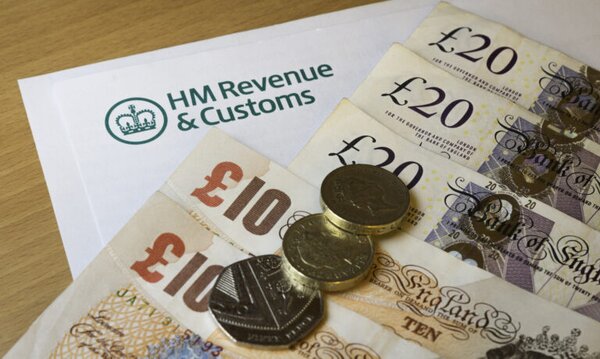Let’s Break This Down Together...
Missed a tax deadline? It happens to the best of us. Those penalty letters from HMRC can be confusing and stressful in equal measure.
This guide walks you through exactly what happens when you file late. We’ll cover penalty amounts, appeals, payment options and how to stay on top of future deadlines.
By the end, you’ll know how to avoid costly mistakes and keep your tax record clean. You’ll also feel more confident about what to do next. Let’s dive in.
Missed a tax deadline? Here's what happens next
Nobody likes getting penalty letters through the post. Yet every year, thousands of UK taxpayers face HMRC penalties for missing filing deadlines, including important tax return deadlines and the main filing deadline set by HMRC.
It happens to the best of us. Life gets busy, paperwork piles up, and suddenly that tax return deadline whether it's for a company tax return, assessment tax return, or self assessment tax return has whooshed past. I once found myself frantically searching for receipts at 11pm on January 31st, desperately trying to beat the clock.
But what exactly happens when you’re late with your tax return? And how much might it cost you? Let’s break down everything you need to know about HMRC late filing penalties in plain English.
What is an HMRC late filing penalty?
Simply put, a late filing penalty is a fine HMRC charges when you don’t submit your tax return on time. It applies to various tax returns including Self Assessment, VAT, Corporation Tax and PAYE, such as assessment tax returns, self assessment tax return, and company tax return.
A penalty applies immediately after the deadline passes. For Self Assessment, that’s usually midnight on January 31st for online returns.
It’s worth noting that late filing penalties are completely separate from late payment penalties. You can be charged both if you’re late with your return and with paying any tax owed. Submitting a complete and accurate return is essential to avoid further penalties.

How much will you be charged for filing late?
The penalties start small but grow quickly if you don’t act. For Self Assessment, a penalty arises as soon as you miss the deadline, and you’ll face an automatic £100 fine, even if you don’t owe any tax.
After three months, daily £10 penalties begin adding up (up to a maximum of £900). The maximum penalty for late filing is capped, so the total penalties for late submission cannot exceed certain limits set by HMRC. If you reach the six-month mark, things get really expensive. You’ll be charged either 5% of the tax due or £300, whichever is more, and a further penalty may be applied if the penalty remains unpaid after a certain period.
At twelve months late, tax geared penalties can reach up to 100% of the tax liability owed in the most serious cases, and a further penalty may also apply if payment is still outstanding. Some penalties are tax geared, meaning they are based on the amount of tax liability or how much corporation tax is owed, so the penalty can increase depending on your outstanding tax.
A three-month late return with £5,000 tax due could cost you £400 in penalties alone (£100 initial fine plus £300 in daily penalties).
For late tax payments or late payments of any tax, a late payment penalty will be charged, and late payment differ depending on the type of tax (such as income tax, PAYE, or corporation tax). These late payments can also result in additional interest charges and may impact your business’s credit rating.
What counts as a reasonable excuse for filing late?
HMRC does accept that sometimes life throws curveballs that make filing on time impossible. They call these "reasonable excuses" and they include things like serious illness, bereavement or unexpected hospital stays.
Technical issues can sometimes qualify too like if the HMRC website crashes on deadline day. However, be warned: HMRC won't accept excuses like "I found the tax return too difficult" or "I forgot the deadline."
If you have a genuine excuse, gather evidence to support your case. Hospital letters, death certificates or system error messages can all help strengthen your appeal.

How can you appeal against a penalty?
If you believe you shouldn’t have been charged a penalty, you can appeal. You typically have 30 days from the date on your penalty notice to make your case. You can appeal against a notify penalty, failure to notify penalty, or inaccuracy penalty if you believe they were issued in error.
The easiest way to appeal is through your HMRC online account. You can also write to them or call, but digital appeals are generally processed faster.
In your appeal, clearly explain why you couldn’t file on time and provide any supporting evidence. Appeals can be made if you had a legal obligation to notify HMRC but had a reasonable excuse for failure to notify. Assessment penalties and unpaid penalties can also be appealed if you can show that the penalty was incorrectly calculated or that there was no tax unpaid.
About 40% of appeals are successful, so it’s worth trying if you have genuine grounds. When considering how penalties are calculated, HMRC may take into account potential lost revenue. Notify penalties are another category that can be appealed.
Late payment interest and charges explained
When you miss the due date for paying your tax bill whether it’s income tax, corporation tax, or capital gains tax HMRC will automatically start charging late payment interest on the unpaid tax. This interest is calculated from the day after your payment deadline right up until the day you finally pay what you owe. The rate of late payment interest can change, so it’s always best to check the latest figures on GOV.UK.
Late payment interest is designed to encourage prompt payment and to compensate HMRC for the delay in receiving your tax. It applies to all types of unpaid tax, including self assessment tax, corporation tax, and capital gains tax. If you think HMRC has made a mistake in calculating your interest perhaps due to an error or an unreasonable delay on their part you can object.
To do this, contact your HMRC caseworker with clear evidence of the error. In some cases, your objection may be referred to the Interest Review Unit for further consideration. Valid objections might include interest charged because of HMRC’s own mistakes or delays that have put you at a financial disadvantage.
Tax payment plans and options if you can’t pay
If you find yourself unable to pay your tax bill in full by the deadline, don’t panic there are options available. HMRC offers payment plans known as Time to Pay (TTP) arrangements, which allow you to spread the cost of your tax liabilities over a period of time. This can be a lifeline if you’re facing cash flow problems or unexpected expenses that make it hard to pay your tax bill all at once.
To set up a payment plan, you can apply online or contact HMRC directly. You’ll need to explain your situation and provide details about your finances. If approved, you’ll be able to pay your tax in instalments, making it more manageable. Keep in mind that while interest will still be charged on the outstanding amount, you can avoid additional penalties for late payment as long as you stick to the agreed plan.
Some people also consider using a business loan to cover their tax bill, which can offer even more flexibility and help you spread the cost over a longer period. Whatever you choose, acting early and communicating with HMRC is key to avoiding further penalties for late payment.

Taxpayer rights and responsibilities
Every taxpayer in the UK has important rights and responsibilities when it comes to their tax affairs. You have the right to appeal against any penalties or decisions made by HMRC if you believe they are incorrect. If you think there’s been a mistake with your tax returns or tax bill, you can also request a review of your case. It’s your responsibility to make sure your tax returns are complete and accurate, and to pay your tax bill on time.
If you’re struggling to pay, it’s essential to contact HMRC as soon as possible to discuss your options, such as setting up a payment plan. Keeping accurate records like receipts, invoices, and bank statements is also a key part of meeting your tax obligations. Failing to comply with these responsibilities can lead to tax penalties, fines, or even legal action.
If you’re ever unsure about your tax position or what’s required, don’t hesitate to seek professional advice. By understanding your rights and responsibilities, you can stay on top of your tax affairs and avoid unnecessary penalties for late filing or late payment.
How to avoid late filing penalties in future
The simplest way to avoid penalties is to file early, don’t wait until the last minute. Set multiple reminders on your phone or calendar for at least a month before the deadline. For those with straightforward tax affairs or relatively straightforward tax affairs, keeping basic, regularly updated records is usually enough to avoid penalties. However, if you have complex tax affairs, you may need more robust systems and processes to ensure compliance.
Gather your paperwork throughout the year rather than scrambling at the last minute. Many accountants recommend keeping a dedicated folder for tax documents as they arrive. This is especially important for schemes with strict filing requirements, such as the Construction Industry Scheme, where late submissions can result in significant penalties.
If you’re really struggling with tax returns, getting help from a professional could save you money in the long run. The cost of an accountant is often less than potential penalties, and this is especially important for people with complex tax affairs.
If you have outstanding liabilities, consider contacting HMRC to discuss a pay arrangement, such as a Time to Pay plan, to manage your debts and avoid future penalties.

What's new with HMRC penalties?
HMRC has been updating its penalty systems recently. They’re gradually introducing a points-based penalty system for different taxes, similar to driving license points. Under this regime, each late submission results in a penalty point, and once you reach a certain threshold of penalty points, financial penalties are imposed.
During COVID, HMRC offered some leniency with penalties, but these special arrangements have now ended. Making Tax Digital is also changing how and when we need to file certain taxes, with new deadlines to remember. These updates are part of broader changes to HMRC tax penalties, which include new rules and thresholds.
Keep an eye on HMRC announcements as penalty rules do change from time to time. Offshore penalties have also become a recent focus, with HMRC increasing enforcement and penalty rates for non-compliance related to offshore income and gains. Staying informed about these changes can help you avoid unexpected fines.
Don't let penalties pile up
HMRC late filing penalties can quickly turn from a small annoyance into a major headache. Filing on time is always the cheapest option, even if you can’t pay your tax bill straight away.
If you do get hit with a penalty, check if you have grounds for appeal before paying. If you do not pay penalties promptly, unpaid penalties can accumulate and lead to further action. For many people, tax returns are a once-a-year stress that’s easy to put off. But staying on top of your tax obligations saves money and worry.
Remember, meeting your tax obligation includes making timely payment submission and ensuring you pay tax on time to avoid additional penalties.
Pie is the UK’s first personal tax app designed specifically for working individuals who want to overcome their tax burdens. Unlike other solutions, Pie offers integrated bookkeeping, real-time tax figures, simplified tax return processing, and timely expert advice all in one place.
Why not make next year’s tax return the easiest you’ve ever done? Check out Pie tax today and say goodbye to those dreaded penalty notices.











